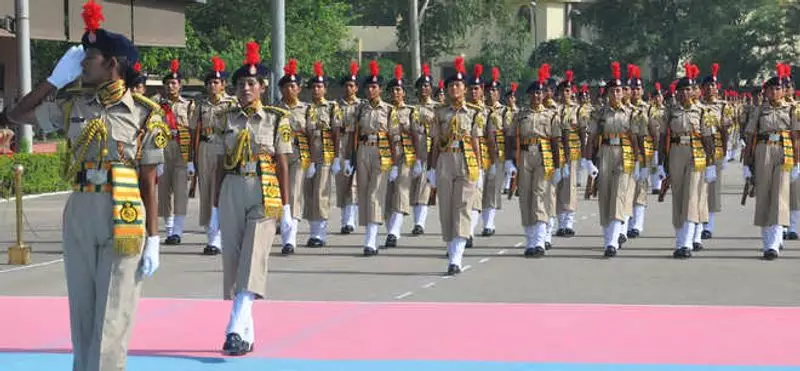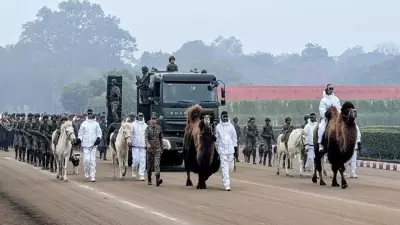
In a landmark decision that marks a significant step toward gender equality in India's security forces, the Indo-Tibetan Border Police (ITBP) has announced plans to establish ten all-women border outposts along the Line of Actual Control (LAC) with China. This strategic initiative will see female personnel taking complete operational control of these high-altitude posts, a first of its kind endeavor for the force guarding one of the world's most challenging frontiers.
Strategic Deployment Along the Himalayan Frontier
The decision was formally announced by ITBP Director General (DG) Nitin Agarwal during his address at the 63rd Raising Day ceremony of the force held in Greater Noida. The ITBP, which celebrated its founding on October 24, 1962, is taking this progressive step as part of its ongoing efforts to expand its capabilities and provide more opportunities for women in combat roles.
The ten border outposts (BOPs) will be strategically positioned all along the 3,488-kilometer-long India-China frontier, stretching from the Karakoram Pass in Ladakh to Jachep La in Arunachal Pradesh. This deployment ensures a distributed presence of these specialized units across the entire theater of operations. The ITBP has already identified suitable locations for these outposts and the process for their establishment is now in motion.
Empowering Women in High-Altitude Security
The concept of all-women BOPs is not entirely new for the ITBP, which has been a pioneer in integrating women into frontline duties. The force successfully ran an experimental all-women post at the Chandhan post in Jammu and Kashmir on the Pakistan border, providing valuable operational experience. Building on this success, the decision to scale up to ten posts on the China border represents a major vote of confidence in the capabilities of women warriors.
DG Nitin Agarwal emphasized that the move is a testament to the force's commitment to women empowerment. "We are going to have 10 BOPs of Mahila (women) on the China border. We have already run one such BOP on the Pakistan border and it was a success," he stated, highlighting the proven track record of female personnel in managing the rigors of border guarding.
Women constables have been an integral part of the ITBP since 2008, and their roles have consistently expanded. They are now deployed in various challenging terrains, from the icy heights of Ladakh to the dense forests of Arunachal Pradesh, performing duties identical to their male counterparts.
Enhancing Operational Capabilities and Morale
The establishment of these outposts is expected to have multiple strategic benefits. Firstly, it will enhance the operational flexibility of the ITBP, allowing for more nuanced engagement with local populations in border areas, where female personnel can often perform certain duties more effectively. Secondly, it serves as a massive morale booster for women in the paramilitary forces, opening up new avenues for leadership and command experience in one of the most sensitive postings.
This initiative aligns with a broader trend within India's security architecture to increase the role of women. The ITBP's move follows the Army's decision to deploy women officers in its artillery units, signaling a paradigm shift in the nation's defense strategy. The personnel for these new BOPs will be selected from the existing cadre of women in the ITBP, who have already proven their mettle in extreme conditions.
As the ITBP continues to strengthen its posture along the LAC, a region that has seen heightened tensions in recent years, the introduction of these ten all-women border outposts is a powerful statement. It underscores India's resolve to secure its borders while simultaneously championing the role of women as equal partners in the nation's defense and security.





